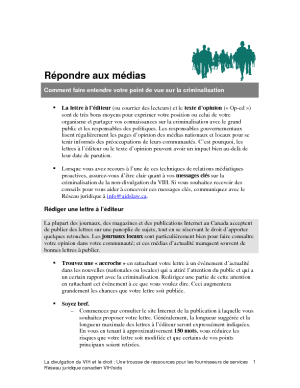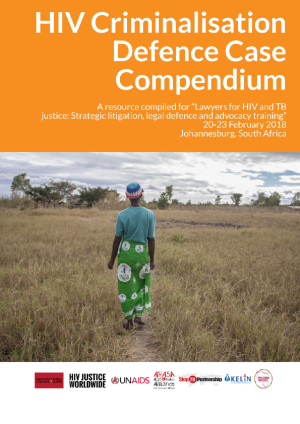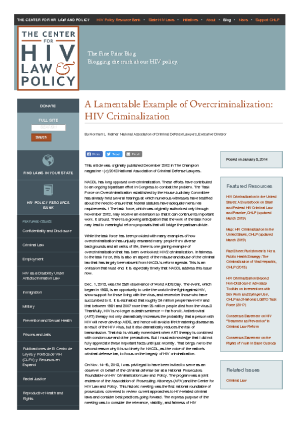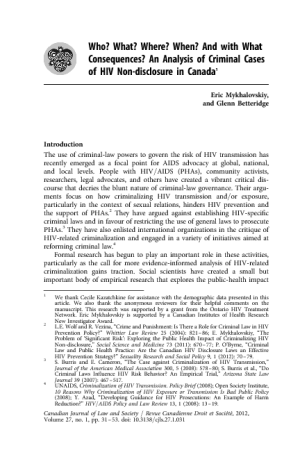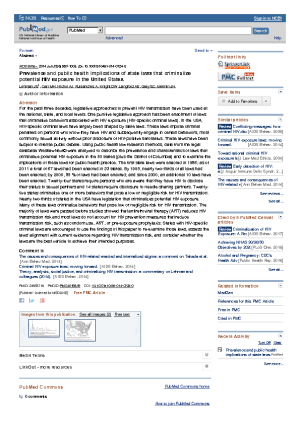Répondre aux médias: Comment faire entendre votre point de vue sur la criminalisation
Explique comment rédiger une lettre à l’éditeur ou écrire un texte d’opinion avec examples.
HIV Criminalisation Defence Case Compendium
This HIV Criminalisation Defence Case Compendium aims to support lawyers acting for those who are alleged to have put others at risk of HIV. Based on research conducted in late 2017, it includes criminal cases from all over the world where strong defence arguments have resulted in an acquittal or reduced penalty for persons living with HIV who have been accused of HIV exposure, non-disclosure or transmission.
The Compendium is not intended to be comprehensive. It has been developed as a resource for a training of lawyers from Africa – “Lawyers for HIV and TB justice: Strategic litigation, legal defence and advocacy training” – held in Johannesburg, South Africa from 20-23 February 2018.
Inside NACDL: A Lamentable Example of Overcriminalization: HIV Criminalization
Norman L. Reimer, Executive Director of the National Association of Criminal Defense Lawyers, writes about the first U.S. National Prosecutors Roundtable on HIV Criminalization Law and Policy – jointly convened by the Association of Prosecuting Attorneys (APA) and the Center for HIV Law and Policy – noting that the APA will endeavour to develop consensus positions with respect to reform of HIV-related laws.
Who? What? Where? When? And with what consequences?: An analysis of criminal cases of HIV non-disclosure in Canada
Explores the evolution of the criminalization of HIV non-disclosure in Canada, focusing on “criminalization creep”: increasing numbers of people being charged with increasingly severe crimes.
Prevalence and public health implications of state laws that criminalize potential HIV exposure in the United States
Describes the prevalence and characteristics of laws criminalizing HIV exposure across the U.S., examining the implications of these laws for public health practice. Finds that nearly two-thirds of states have legislation criminalizing potential HIV exposure, including behaviours that pose low or negligible risk. States are encouraged to re-examine HIV-specific laws (referencing current science) and consider whether current laws are the best vehicle to achieve their intended purposes.
